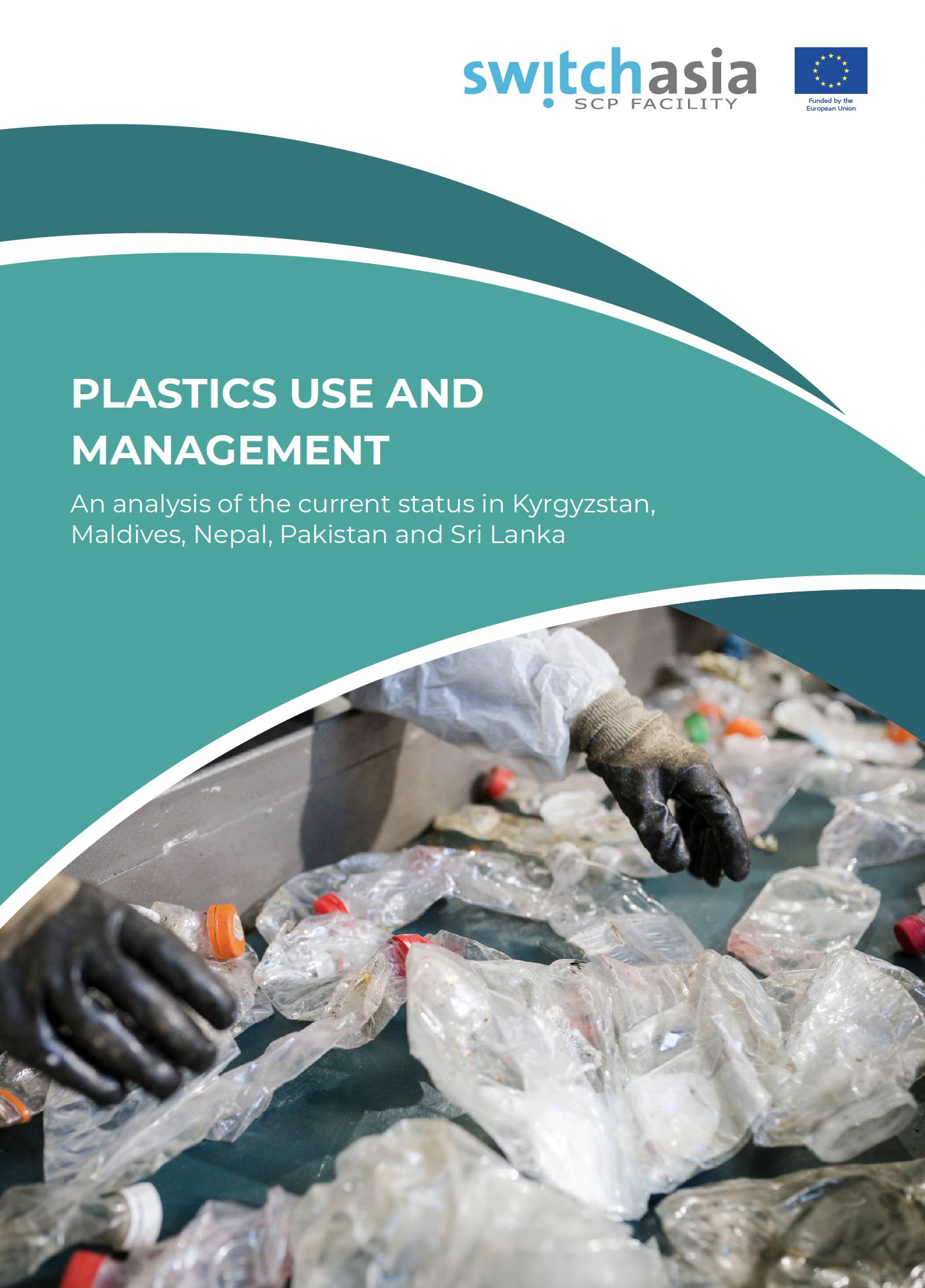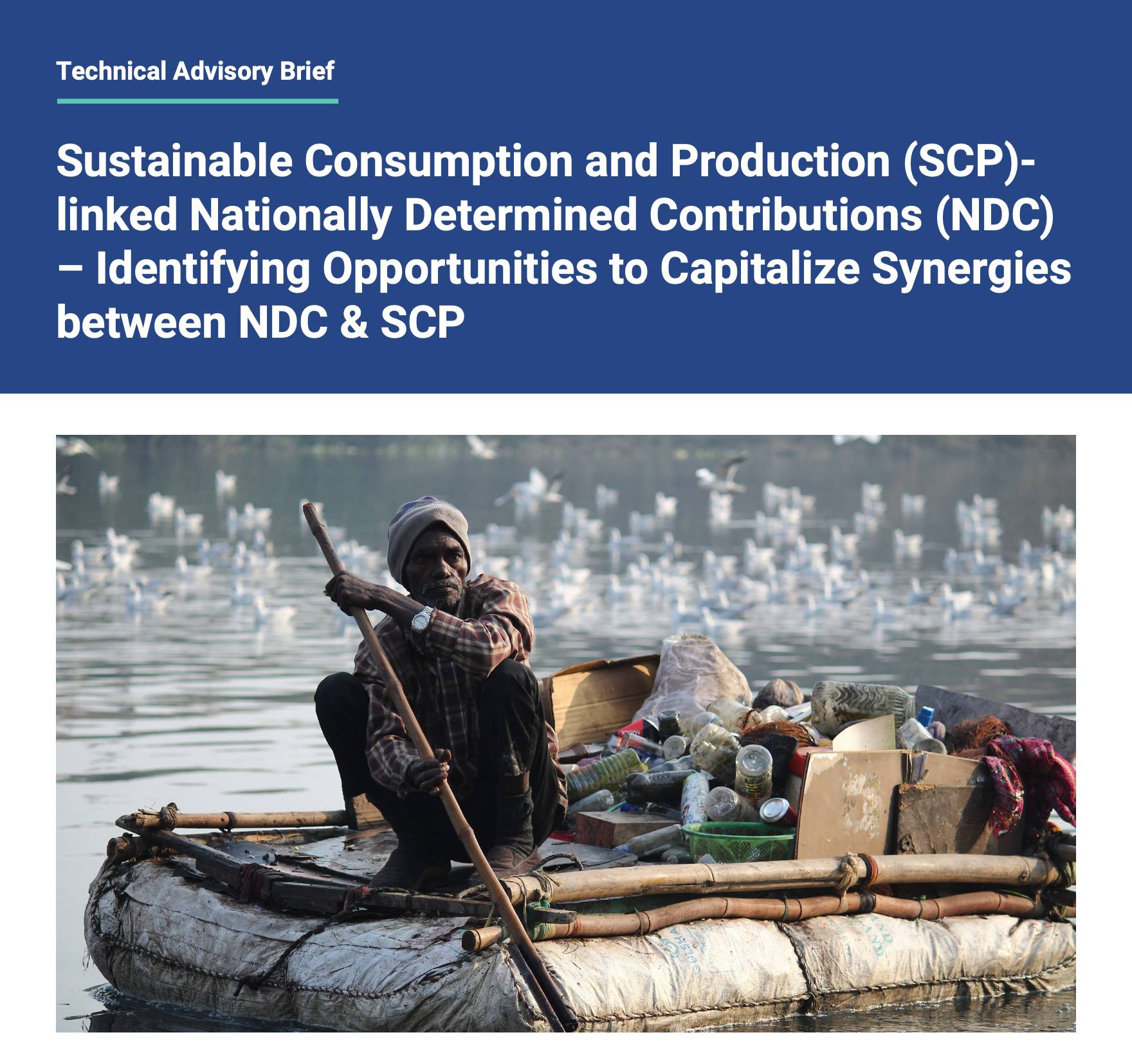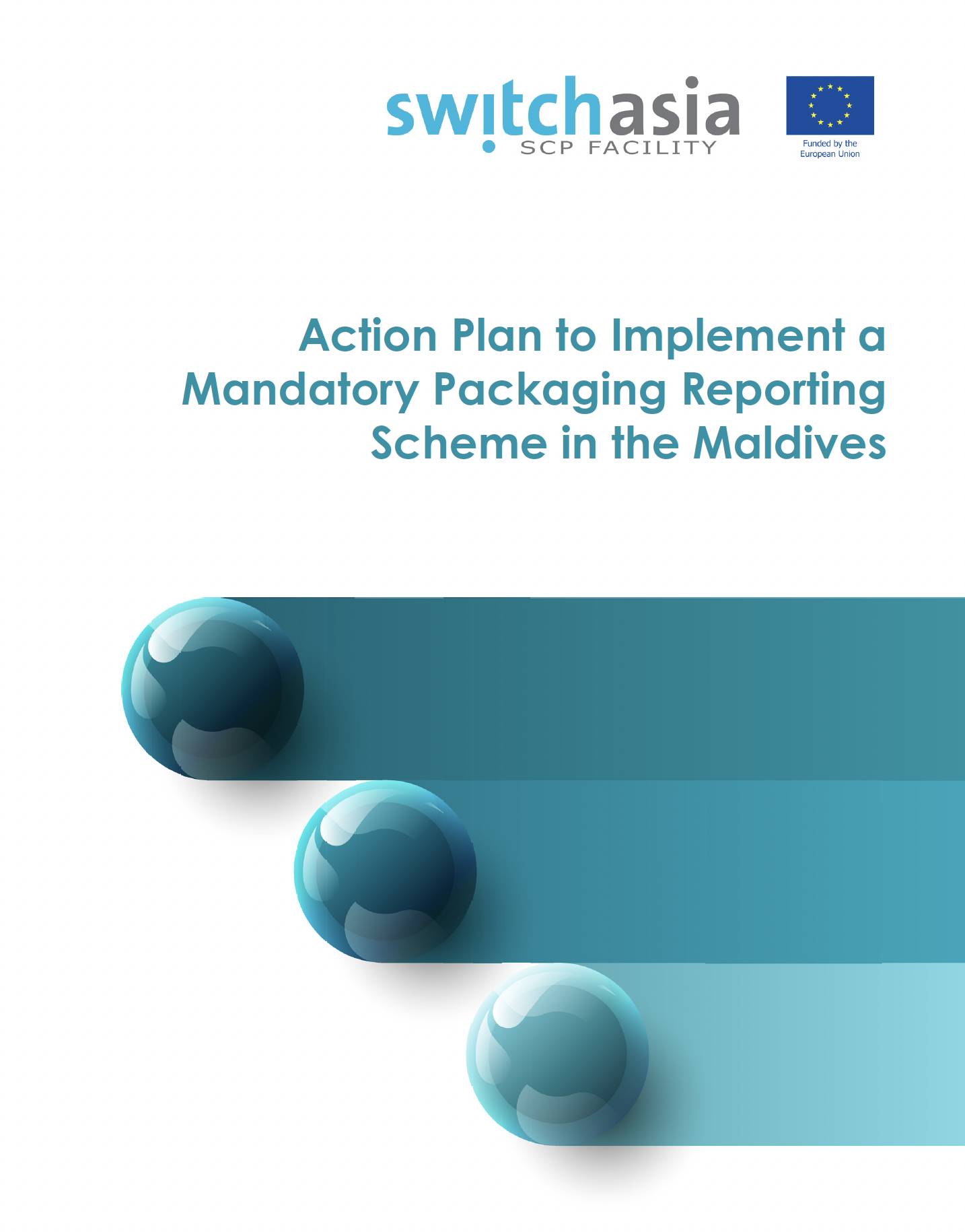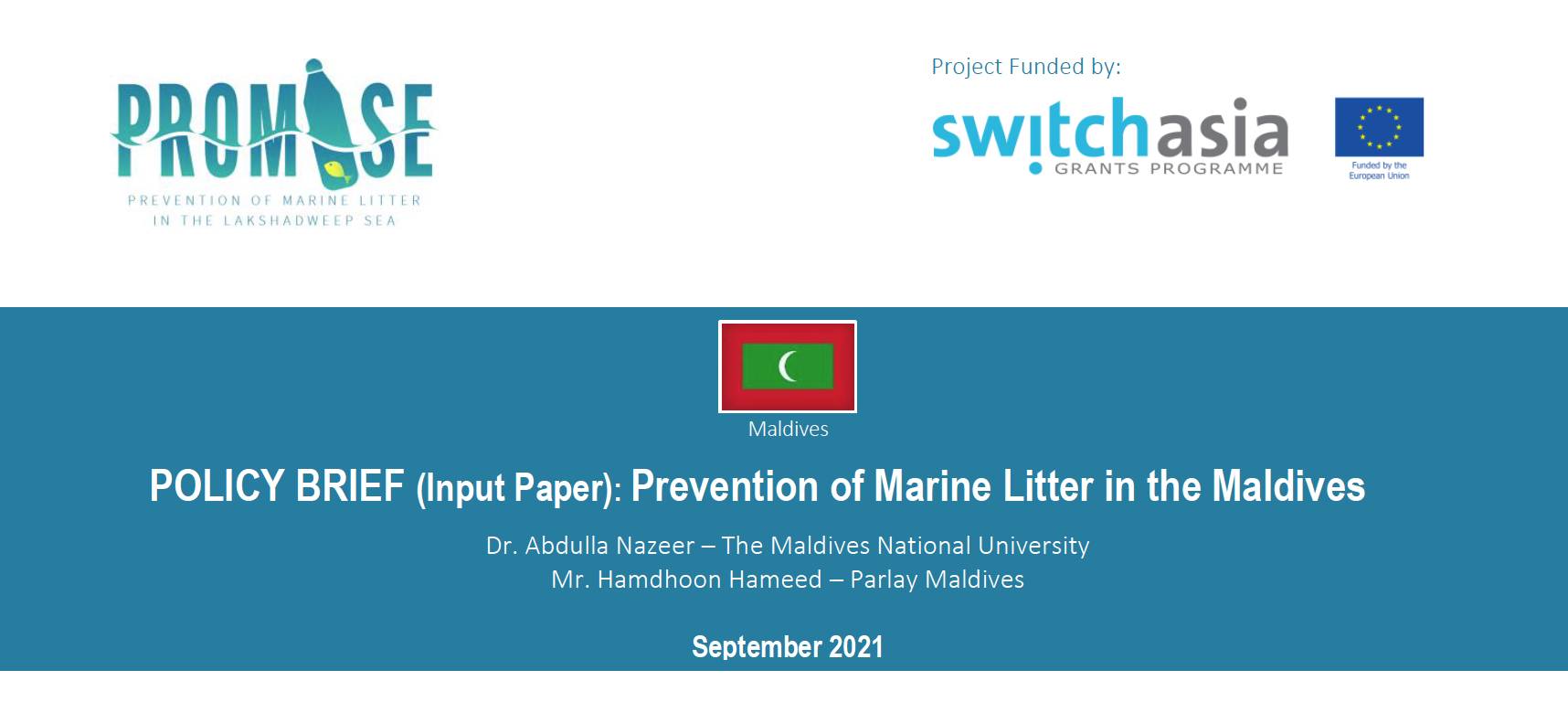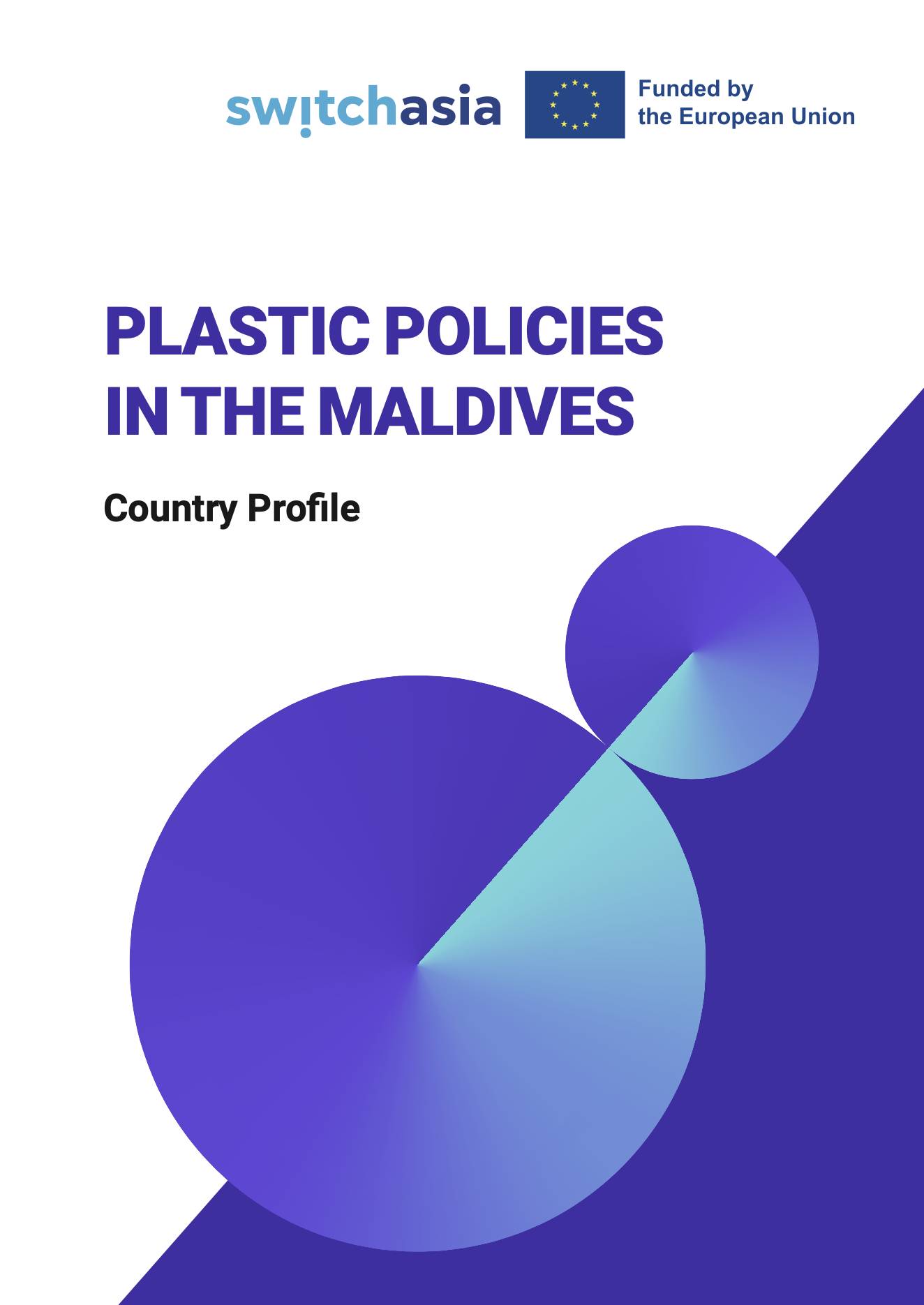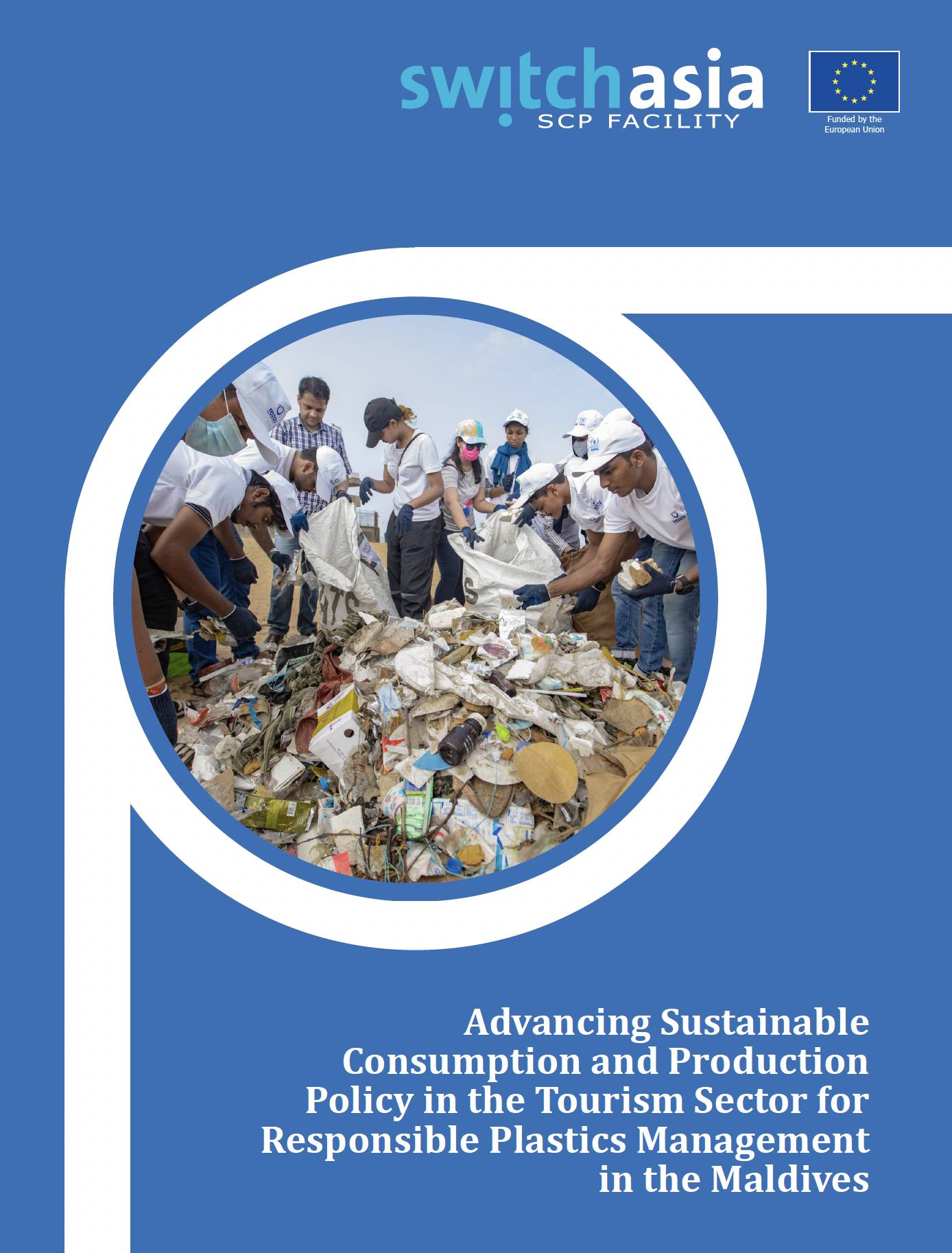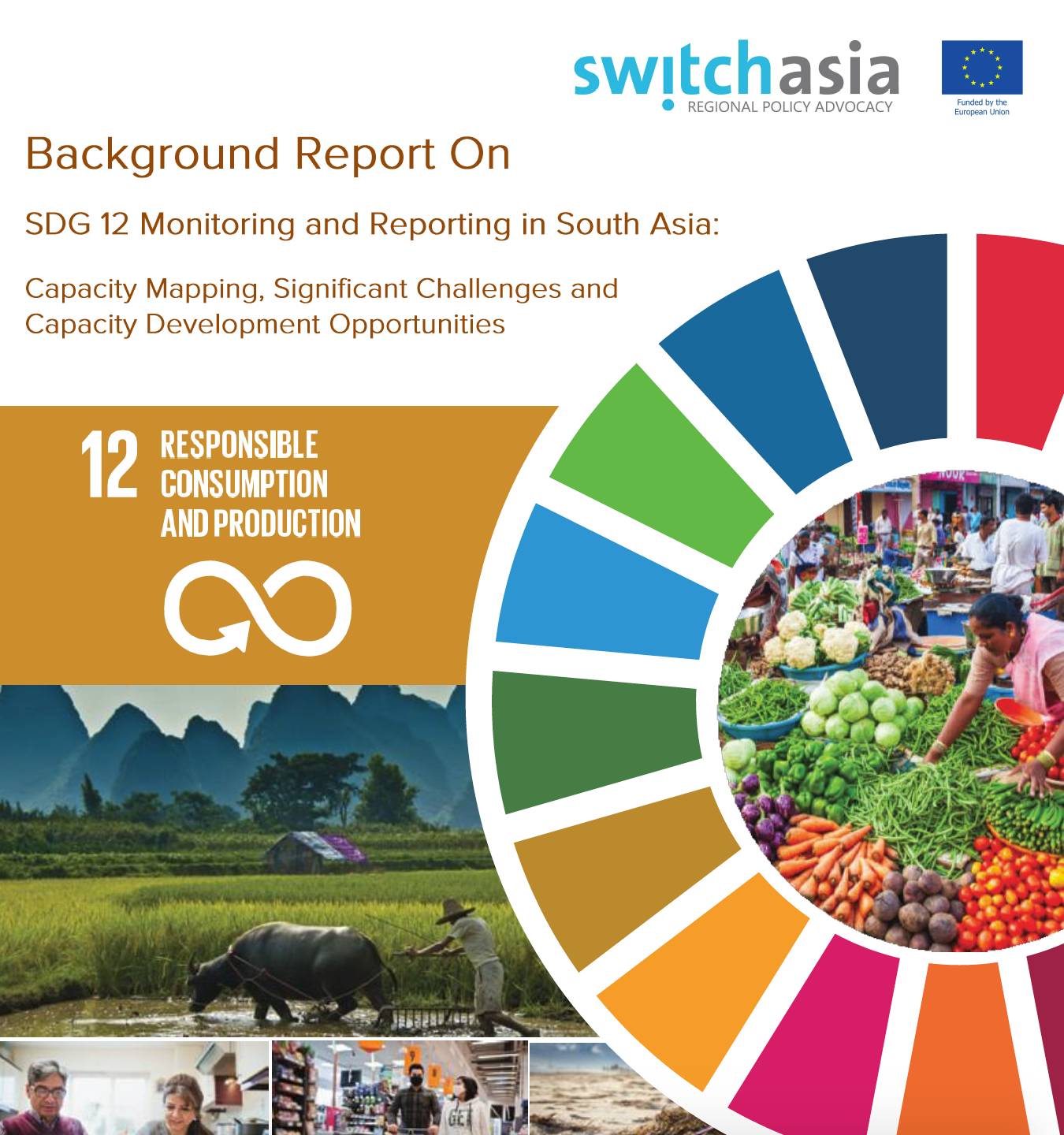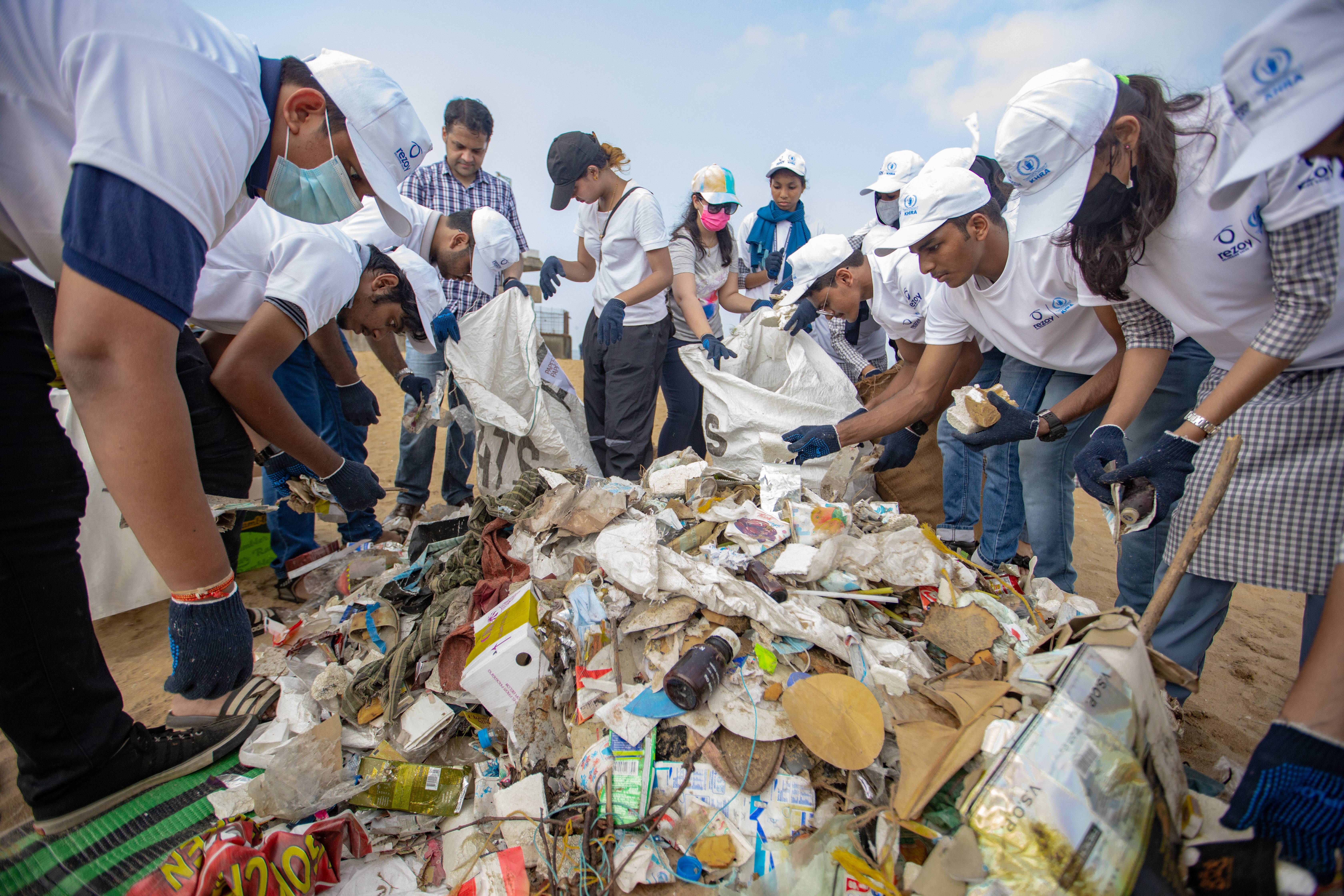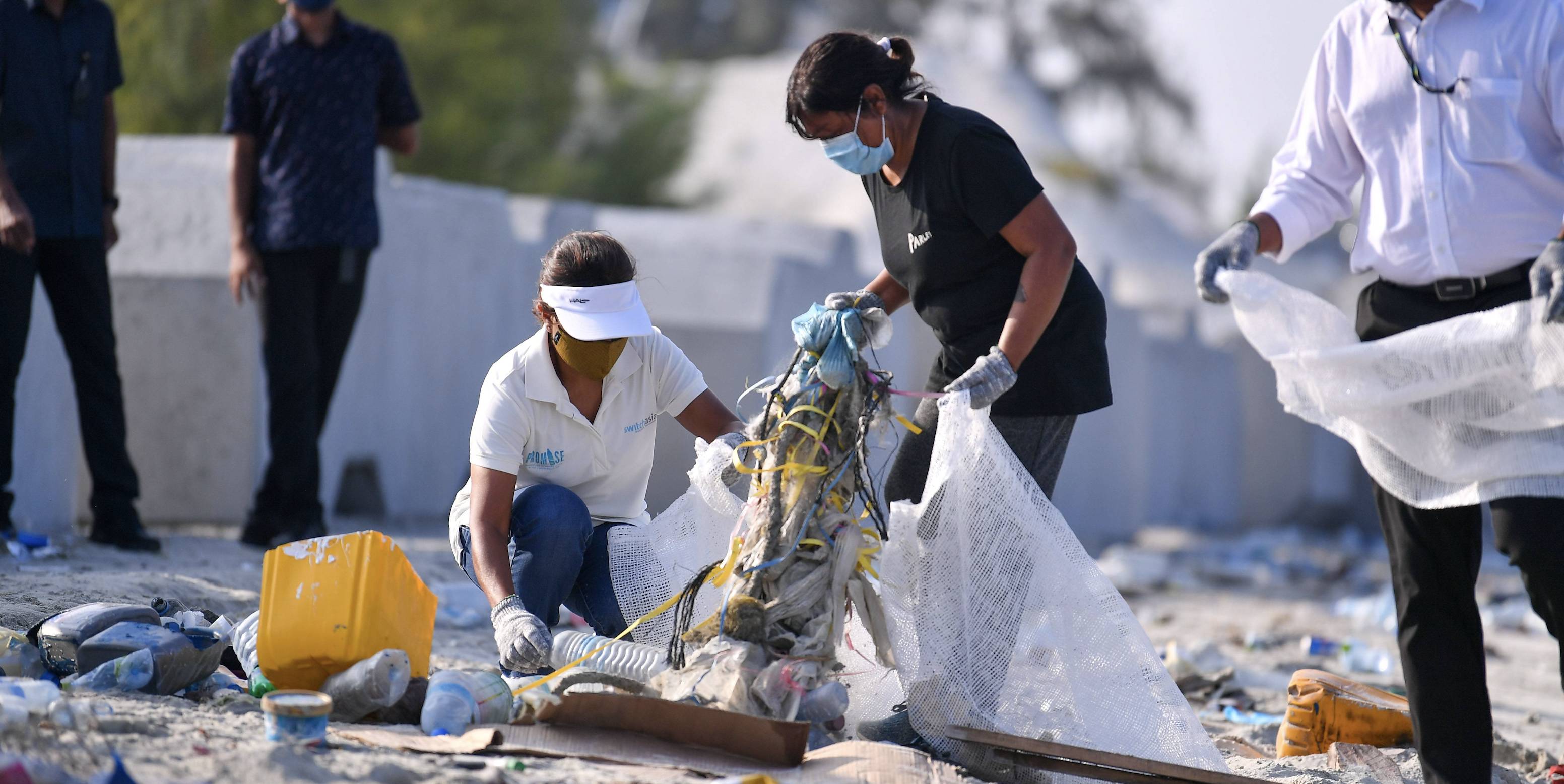
SCP Context
SCP Context
The Maldives is working to promote sustainable consumption and production (SCP) through a set of coordinated policies and strategies that align with the Sustainable Development Goals (SDGs). Key initiatives, including the Magey Saafu Raajje National Waste and Resource Management Policy and Strategy 2024–2028[1], the National Waste Management Policy and Strategy (NWMPS) 2023–2027[2], the Waste Management Act 2022[3], E-Waste Management Guideline[4], the National Circular Economy Framework & Guide for Entrepreneurs[5], and the Single-Use Plastic Phase-Out Plan 2020–2023[6], aim to improve waste management, resource efficiency, and circular practices across the country.
Connection to the Global Agenda
The Maldives aligns its national development frameworks with the 2030 Agenda for Sustainable Development. Through Voluntary National Reviews (VNRs) in 2017[7] and 2023[8], the country reports progress on all SDGs, including Responsible Consumption and Production. The SDG Roadmap, developed under the UN MAPS (Mainstreaming, Acceleration, and Policy Support) engagement[9], guides the integration of the SDGs into national policies and planning. Complementing this, the Maldives Creative Economic Strategic Action Plan 2024–2028[10] promotes all 17 SDGs, fostering sustainable island living, resilient communities, and inclusive development. SDG implementation is coordinated by the Ministry of National Planning, Housing, and Infrastructure (MNPHI), through its National Planning and SDG Coordination Division, ensuring alignment between national priorities and global goals.
A key solution to Climate Change
The Maldives, one of the most climate-vulnerable nations, has strengthened its commitment through its Third Nationally Determined Contribution (NDC 3.0), submitted in 2025[11]. It pledges to reduce 1.52 million tonnes of CO₂-equivalent emissions by 2035 compared to a business-as-usual scenario, with ambition to meet 33% of electricity needs from renewable energy sources, enhance energy efficiency, improve waste management, and transition to more efficient transport. These goals remain conditional on international support in finance, technology, and capacity building. Guided by the Energy Roadmap 2024–2033[12], which charts the pathway for clean energy transition, the NDC also emphasizes adaptation priorities, including coastal protection, water and food security, public health, marine ecosystem resilience, and disaster preparedness.
Priority sectors for Sustainable Consumption and Production
- Advancing the blue economy by promoting sustainable fisheries, marine resources, and ocean-based industries while safeguarding ecosystems.[13]
- Reducing maritime and land-based pollution through circular design and the adoption of circular economy practices across key sectors.13
- Strengthening waste management by developing and operationalising three regional waste management systems and establishing island-level waste and resource management centres.11
- Expanding composting programmes to promote waste-to-resource recovery and reduce reliance on landfills.11
- Remediating the two largest dumpsites and transitioning towards integrated, resource-efficient waste solutions nationwide.11
[1] Ministry of Environment, Climate Change and Technology. (2024). Magey Saafu Raajje National Waste and Resource Management Policy and Strategy
[2] Ministry of Environment, Climate Change and Technology. (2023). National Waste Management Policy and Strategy
[3] Maldives Inland Revenue Authority (MIRA). (2022). Unofficial translation of the Waste Management Act
[4] Ministry of Finance. (2024). E-Waste Management Guideline
[5] Indian Ocean Commission. (2023). National Circular Economy Framework & Guide for Entrepreneurs for the Maldives
[6] Ministry of Environment, Climate Change and Technology. (2021). Single Use Plastic Phase-Out Plan
[7] Republic of Maldives. (2017). Voluntary National Review 2017
[8] Republic of Maldives. (2023). Voluntary National Review 2023
[9] United Nations. (2022). Maldives SDG Roadmap
[10] Ministry of Economic Development & Trade. (2024). Creative Economic Strategic Action Plan 2024–2028
[11] Ministry of Tourism and Environment. (2025). Maldives' Third Nationally Determined Contribution
[12] Ministry of Climate Change, Environment and Energy. (2024). Paving the way for a just energy transition in Maldives: Road map for the energy sector 2024–2033
[13] India Ocean Commission. (2023). National Circular Economy Framework & Guide for Entrepreneurs for the Maldives
SWITCH-Asia Activities
A look back at milestones that shaped our work
2018
SCP Facility
- Preliminary assessment of SCP related policies, activities, needs/gaps, and opportunities.
Regional Policy Advocacy Component (RPAC)
Facilitated the participation of Maldivian key-stakeholders in the following regional/ sub-regional activities:
- Asia Pacific Low Carbon Lifestyles Challenge (19-22 Mar 2018), hosted by Thailand, regional level
- Transforming Asia Pacific: Innovative Solutions, Circular Economy and Low Carbon Lifestyles (17-19 Sep 2018), hosted by Thailand, regional level
- Asian Circular Economy Leadership Academy (3-8 Dec 2018), hosted by Thailand, regional level
2019
SCP Facility
- A multi-stakeholder consultation was organised on 29 January 2019;
- The National Focal Point officially addressed a specific request for support in mainstreaming SCP in improving and scaling-up energy efficiency, sustainable waste management and sustainable tourism in a systemic and more integrated manner;
- A concept note with specific actions and timeline was jointly developed by the two components of the programme and approved by both the national government and the EU Delegation.
Regional Policy Advocacy Component (RPAC)
- Initiated a national activity to support Maldives to develop a National Action Plan on SCP.
Facilitated the participation of Maldivian key-stakeholders in the following regional/ sub-regional activities:
- “Sustainability Reporting – Thinking Circular Economy by Businesses” - This event was organised back-to-back with 2019 Asia Pacific Forum on Sustainable Development (27 Mar 2019), hosted by Thailand, regional level
- Businesses Accelerating Inclusive Green Economies – "Leaving No One Behind” - Side event on the Responsible Business and Human Rights Forum co-organised by the Royal Thai Government, OECD, United Nations Development Programme (UNDP), ESCAP, International Labour Organization (ILO) and with the participation of the UN Working Group on Business and Human Rights (11 Jun 2019), hosted by Thailand, regional level
- WEBINAR: SDG 12.1 Reporting for SWITCH-Asia Countries – Connecting the dots between actions and reporting (5 Nov 2019), regional level
- Policy Dialogue on SDG12 Reporting (21 Nov 2019), hosted by Vietnam, regional level
- 2019 SWITCH-Asia Leadership Academy on Circular Economy (2-6 Dec 2019), hosted by China, regional level
- "Supporting decision making on SCP through training on Sustainable Procurement” - This event was organised back-to-back with International Conference on Sustainable Energy and Green Technology 2019 (11 Dec 2019, hosted by Thailand, regional level
2020
SCP Facility
- A new concept note on single-use plastics (SUP) in the tourism sector with specific actions and timeline was developed by the SCP Facility and approved by both the national government and the EU Delegation.
- On this basis, the assignment activities and deliverables were developed.
Regional Policy Advocacy Component (RPAC)
Facilitated the participation of Maldivian key-stakeholders in the following regional/ sub-regional activities:
- SWITCH2Green Meeting (Apr 2020)- RPAC initiated the discussion and shared the first report in 2020.
- Moving the Needle on Climate Change (10 Jun 2020)– The event was co-organised by the UNESCAP as a part of the 2020 Virtual United Nations Responsible Business and Human Right Forum (RBHRF), regional level
- World Environment Day 2020 (5-7 Jun 2020)– A media kit was provided to call for action to promote SCP as a part of the 2020 World Environment Day (WED) celebration, regional level
- Intervention in regional forum: Webinar on Sustainable Lifestyles for Plastics & Packaging Waste Management During a Pandemic COVID-19 (6 Aug 2020), regional level
- SCP in Tourism: Opportunities and Challenges with COVID-19 (8 Oct 2020), regional level
- Innovation and Connectivity through Farm to Fork (13 Nov 2020), regional level
- Sustainable Lifestyles for SCP (19 Nov 2020), hosted by Thailand, regional level
- Sub-regional Workshop on SPP for SACEP Countries (25 November 2020), the event was organised in partnership with South Asia Co-operative Environment Programme (SACEP) for South Asia region, Sub-regional level
- Support to Steering Committee of SWITCH-Asia (3 Dec 2020)– RPAC provided support for the annual Steering Committee Meeting and proposed 2021 workplan, regional level
- Regional Policy Dialogue on Circular Cities (4 Dec 2020), regional level
- Regional Dialogue Driving Mechanisms for Eco-Design in Asia (9 Dec 2020), regional level
- Leadership Academy on Circular Economy 2020 (14-18 Dec 2020), regional level
- Webinar: Innovations & Startups (16 Dec 2020), regional level
2021
SCP Facility
- Two experts recruited and assignment launched in March 2021, seeking to advise on sustainable waste management policies and tools for minimizing and preventing single-use plastics and improving circularity of plastics in the tourism sector that are in line with SCP and circular economy policies in the Maldivian context.
- Stakeholder consultation implemented to focus Maldives Stakeholder Consultation Workshop › Resource Library | SWITCH-Asia
- Desk research and interviews with different stakeholder groups of plastics in the tourism sector conducted to provide answers analytical questions as formulated during stakeholder workshop.
Regional Policy Advocacy Component (RPAC)
- The RPAC is providing technical support to Maldives to strengthen the country’s national policy framework on Sustainable Consumption and Production through the development of National Action Plan on SCP
Facilitated the participation of Maldivian key-stakeholders in the following regional/ sub-regional activities:
- Contextualising the Circular Economy for Action (4 Feb 2021), regional level
- Technology for Circular Economy: A Prologue to the 2021 SWITCH-Asia Leadership Academy (25 March 2021), regional level
- Circular Economy and Sustainable Lifestyles Course (18 May 2021) – launch of offline course on SCP for policy makers and young professionals, regional level
- South Asia Policy Dialogue on the Role of Businesses in Accelerating SCP (23 March 2021) – to disseminate the findings of the RPAC Study on SCP – Stocktaking of Perspectives in South Asian Business, sub regional level
- GO4SDGs High level launch in Asia and the Pacific (21 April 2021), regional level
- World Environment Day 2021 (4 June 2021), regional level
2022
SCP Facility
- Government training workshop held in January 2022 and deliverables of assignment prepared.
- Training for government stakeholders organised to provide government stakeholders with the findings of the assignment, and share information on best practices, technical solutions, and policy recommendations in the context of the Maldives for the prevention and reduction SUPs. Training for Government Stakeholders › Resource Library | SWITCH-Asia
- Further detailing of recommendations regarding tools and instruments to enable single-use plastics ban policy formulated by government.


